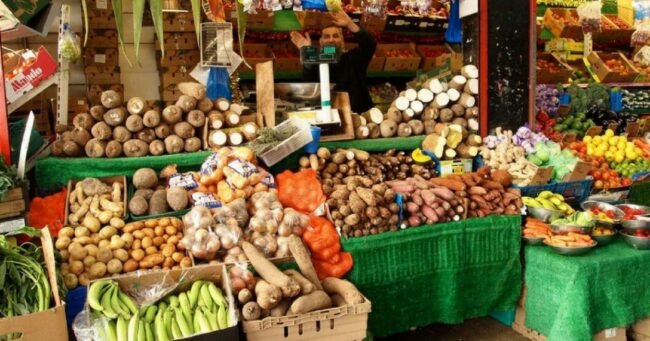The Consumer Advocacy and Empowerment Foundation (CADEF) has identified the major factors contributing to high costs of food prices, urging the government to address the issues.
Professor Chiso Ndukwe Okafor, the Executive Director of CADEF, while briefing journalists after meeting with the Federal Competition and Consumer Protection Commission (FCCPC) and other agencies, including farmers and NGOs, said the meeting explored ways to address the challenges affecting fair pricing.
She said in partnership with Consumer International, they embarked on data collection in six states on food prices to ascertain the major causes of high food prices.
“Recently, we had a high-level meeting with the FCCPC and other relevant agencies, including NGOs, and the conversation was around what is going on in Nigeria regarding food and what we are going to do about it and it needs to be done right away.
“Consumer International is an international agency that has partnered with CADEF on fair food prices. They told us to assist them in collecting data on food prices.
ALSO READ: We diverted goods in truck as payback for stingy transporter —Syndicate leader
“We were able to look into 14 commodities that are produced in Nigeria in Edo, Kano, Benue, Abuja, Lagos, and Enugu states. We collected data from the six states for October, November, December, January, February, and March.
“We collected the data in real-time three times a month and uploaded them in a tool created by Consumer International in partnership with other agencies. The data was collected along the value chain, from farm to middlemen to retailers,”, Professor Okafor said.
“Yesterday, we were able to present some of our findings, and we found out that in some cases, there was over a 100% price difference between the farmgate and the retail gate within a couple of days.
“We went into the areas and collected data on the ground, the enumerators went on the ground, that is why they uploaded their data while they were there.
“During the conversation, the farmers’ groups that were there talked about the insecurity. Farmers are no longer able to go to their farms and markets because of security challenges.
“Another issue the farmers raised is the issue of middlemen. Because the farmers didn’t know the prices of goods in the market, the middleman could quote them a price, which they would accept.
“Sometimes, the middlemen buy up all the farm produce on credit, go and seek, then come back and give them a smaller amount.
“Another issue is transportation and logistics because some of these products are perishable. Farmers want to sell so that they don’t waste. So, the transportation cost is very high for farmers and not stable.
“The transporters also complained about multiple taxes on the highway. The local touts, the local governments, and the security forces are collecting ‘taxes’ from the transporters. Different taxing agencies continue collecting taxes from transporters. A four-hour journey can end in 24 hours due to bad roads and no storage facilities.
“Then in the market, the market associations, and other associations, we tell the sellers what they can bring in and how much they will sell their products,” she explained.
Furthermore, she reiterated the need for the government, through the FCCPC, to dismantle the cartels in the market, making food prices soar.
She also called for the introduction of price tags in the local markets, so that consumers can buy at fair prices. This, she said, is backed by the law.
These are the conversations we had, and the FCCPC and other agencies have promised to come up with a solution. They are also going ahead to do further data gathering.
Professor Okafor, however, called on the public to support FCCPC and the government by reporting unfair food prices to the authorities.
While reading out some of the outcomes of their meeting with the stakeholders, the Project Specialist of Consumers International, Davine Minayo, said the FCCPC and other authorities must be supported and empowered to act against anti-competitive practices that are exploiting consumers and producers.
“Authorities, consumer groups, researchers, and others, must collaborate to implement a food price monitoring mechanism that can provide greater transparency on unfair prices and support decision-making by all stakeholders.
“Value chain surveillance and enforcement must be strengthened, through investigation into key bottlenecks and price build-ups; multi-stakeholder task forces to support enforcement; a secure whistleblowing system for alerts on anti-competitive practices; and proactive measures from the FCCPC to eliminate these practices.
“Ministries of trade, agriculture, and more, must take action to address other distortions and inefficiencies in the value chains, such as those linked to infrastructure and transportation; imports and taxes; and supply shocks linked to conflict and climate that are disrupting food supply.
“The voices of consumers, producers, and traders must be included throughout the governance of food systems and marketplaces, to learn from their specific experiences, and to ensure the protection of the most vulnerable.
“All stakeholders must continue to collaborate beyond the forum, through sectoral and cross-sectoral task forces and coalitions that facilitate: the development and enforcement of policy and regulation; collection and sharing of data and evidence; development of academic research to strengthen knowledge; investigative journalism and media coverage of issues of unfair food prices; and much more In summary – stronger data, stronger enforcement, and stronger collaboration”.
